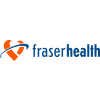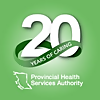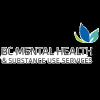Detailed Overview
Under the direction of the Client Care Coordinator, the Clinician utilizes advanced clinical knowledge to contribute to the efficiency of service delivery and advancement of practice and interventions on the Assertive Community Treatment (ACT) team.
Working as a member of the interdisciplinary treatment team and within the organization's framework and standards, provides advanced clinical practice and interventions, at various sites in the community including private homes, relating to assessment, intervention, treatment, outreach and / or, consultation, and referral for clients experiencing mental health and substance use problems and their caregivers / families.
Responsibilities As a member of the interdisciplinary treatment team, provides advanced clinical practice and interventions in the community setting.
Screens and responds to referrals through the intake process, and from a variety of sources, to ensure clients meet service mandate;
provides mental health and / or substance abuse assessments and, where appropriate, takes steps to stabilize crisis situations and makes referrals to follow-up service and support.
Coordinates client treatment by ensuring that clients have a service plan that maximizes rehabilitation and utilizes relevant community supports that are developed in partnership and coordinated with the client and caregiver / family and the interdisciplinary team;
participates in discharge planning and follow-up. Utilizes a variety of treatment modalities for individuals, groups and families.
Promotes and facilitates client independence, by modeling, counseling and teaching life skills within a bio-psycho-social rehabilitation model;
Documents observations, interventions and service outcomes in client records; reviews and maintains up to date clinical records to monitor and evaluate treatment outcomes.
Maintains required statistical documentation and health information systems in accordance with Fraser Health processes and standards.
Participates in orientation and training of new staff and provides internal, local and regional training on specialized addiction issues as requested.
Takes a lead role in development of new programs, groups or services; communicates policies, programs and procedures by written form and by providing verbal directions;
Collaborates and consults with other service providers on the interdisciplinary team by providing input and feedback. Participates in and delivers educational sessions for clients and their families / caregivers and community groups as assigned.
- Develops community support components to service plans that maximize the client's inclusion in the community in collaboration with client, family, and other sources of support for the client;
- acts as client advocate. Under the direction of the Care Coordinator, carries out quality assurance activities and projects;
analyzes and acts upon information received through incident reports, evaluations and other data, including collecting and compiling statistical data for research and evaluation purposes and contributing to the development of outcome measures for Mental Health and Substance Use Services.
Communicates and shares information with community agencies and the public about mental illness and mental health and / or substance use services, promoting good public relations and facilitating efficient and cooperative relationships.
Performs other related duties as required. Qualifications Education and Experience Master's Degree in a health related discipline from an approved post-secondary institution.
Three years recent related experience or an equivalent combination of education, training and experience. Valid Class 5 BC Driver's License and access to personal vehicle for business use.
- Skills and Abilities Demonstrated understanding of alcohol and drug addiction issues, substance use assessments, treatment methodologies, intervention strategies, the change process, and community dynamics;
- Demonstrated knowledge of available programs and services, their interrelationships, and their function in delivering services in the community;
Demonstrated advanced competence congruent with the organization's framework and standards within a rehabilitation / recovery, harm-reduction focused model.
Knowledge of applicable legislation, such as the Mental Health Act and the Guardianship Act. Ability to communicate effectively, both verbally and in writing.
Demonstrated effective interpersonal skills. Demonstrated organizational, problem solving and teaching skills. Demonstrated judgment, good observation and client assessment skills, tact and empathy.
Ability to work independently, demonstrating initiative, with limited supervision. Demonstrated knowledge of adult education skills.
Ability to work collaboratively as part of an interdisciplinary team. Ability to promote positive change and independence.
Ability to prioritize and organize workload. Ability to carry out the duties of the position. Ability to operate a personal computer with a variety of Windows based software.
Ability to operate related equipment.




